#timmy lenox
Text
There are a lot of things to blame TikTok for, but somewhere in there is it has gotten me to listen to a Passions (1999-2008) podcast. This, in turn, has inspired me to rewatch Passions (1999-2008).
Also, Tabitha and Timmy Lenox will always be stars.
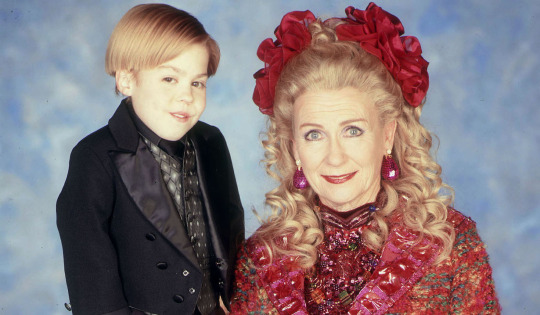
3 notes
·
View notes
Photo

#josh ryan evans#passions#soap opera#soap operas#timmy lenox#banner#geocities#old internet#old web#webcore#memorial page#celebrities
2 notes
·
View notes
Video
youtube
The best part is the kids kissing and not even noticing that they are about to run over anyone.
4 notes
·
View notes
Photo

The best part of the show.
#passions#timmy and tabitha#tabitha lenox#nbc passions#fanart#my art#mspaint#I think i accidentally dressed tabitha in a bowling shirt??? why me
9 notes
·
View notes
Text
Frankie Lymon
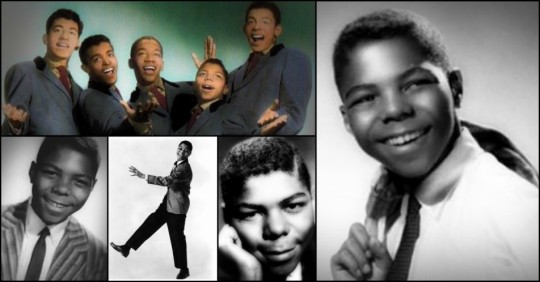
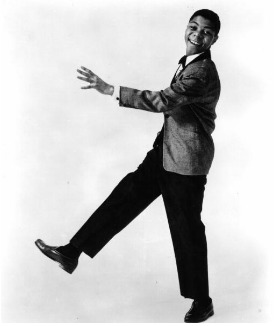

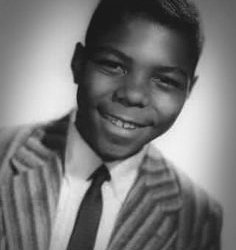
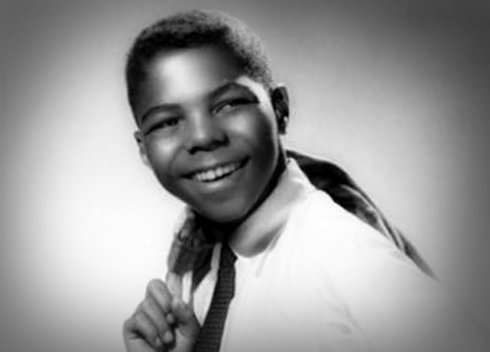

Franklin Joseph (Frankie) Lymon (September 30, 1942 – February 27, 1968) was an American rock and roll/rhythm and blues singer and songwriter, best known as the boy soprano lead singer of the New York City-based early rock and roll group The Teenagers. The group was composed of five boys, all in their early to mid-teens. The original lineup of the Teenagers, an integrated group, included three African-American members, Frankie Lymon, Jimmy Merchant, and Sherman Garnes; and two Puerto Rican members, John Seda and Douglas Seda.
The Teenagers' first single, 1956's "Why Do Fools Fall in Love," was also its biggest hit. After Lymon went solo in mid-1957, both his career and that of the Teenagers fell into decline. He was found dead at the age of 25 on the floor of his grandmother's bathroom from a heroin overdose. His life was dramatized in the 1998 film Why Do Fools Fall In Love.
Early years: joining the Teenagers
Frankie Lymon was born in Harlem, New York on September 30, 1942 to Howard and Jeanette Lymon. Howard worked as a truck driver and Jeanette worked as a maid. Howard and Jeanette Lymon also sang in a gospel group known as the Harlemaires; Frankie and his brothers, Lewis and Howie, sang with the Harlemaire Juniors (a fourth Lymon brother, Timmy, was a singer, though not with the Harlemaire Juniors). The Lymons struggled to make ends meet, so, at age 10, Lymon began working as a grocery boy.
At the age of 12 in 1954, Lymon heard a local doo-wop group known as the Coupe De Villes at a school talent show. He became friends with the lead singer, Herman Santiago, and he eventually became a member of the group, now calling itself both The Ermines and The Premiers. Dennis Jackson of Columbus, Georgia, was one of the main influences in Lymon's life. His personal donation of $500 helped start Lymon's career.
One day in 1955, a neighbor gave The Premiers several love letters that had been written to him by his girlfriend, with the hopes that he could give the boys inspiration to write their own songs. Merchant and Santiago adapted one of the letters into a song called "Why Do Fools Fall in Love". The Premiers, now calling itself The Teenagers, got its first shot at fame after impressing Richard Barrett, a singer with The Valentines. Barrett, in turn, got the group an audition with record producer George Goldner. On the day of the group's audition, Santiago, the original lead singer, was late. Lymon stepped up and told Goldner that he knew the part because he helped write the song. The disc jockeys always called them "Frankie Lymon and the Teenagers".
Life and career
"Why Do Fools Fall in Love": fame and success
Goldner signed the group to Gee Records, and "Why Do Fools Fall in Love" became its first single in January 1956. The single peaked at No. 6 on the Billboard pop singles chart, and topped the Billboard R&B singles chart for five weeks.
Six other top blues 10 singles followed over the next year or so: "I Want You to Be My Girl", "I Promise to Remember", "Who Can Explain?", "Out in the Cold Again", "The ABC's of Love", "I'm Not a Juvenile Delinquent", and "Baby Baby" were also popular Teenagers releases. "I Want You To Be My Girl" gave the band its second pop hit, reaching No. 13 on the national Billboard Hot 100 chart. "Goody Goody" (written by Matty Malneck and Johnny Mercer and originally performed by Benny Goodman) was a No. 20 pop hit, but did not appear on the R&B chart. The Teenagers placed two other singles in the lower half of the pop chart.
With the release of "I Want You To Be My Girl", the group's second single, The Teenagers became Frankie Lymon & the Teenagers. An album, "The Teenagers Featuring Frankie Lymon", was released in December 1956.
Going solo
In early 1957, Lymon and the Teenagers broke up while on a tour in Europe. During an engagement at the London Palladium, Goldner began pushing Lymon as a solo act, giving him solo spots in the show. Lymon began performing with backing from pre-recorded tapes. The group's last single, "Goody Goody" backed with "Creation of Love," initially retained the "Frankie Lymon & the Teenagers" credit, but they were actually solo recordings (with backing by session singers). Lymon had officially departed from the group by September 1957; an in-progress studio album called Frankie Lymon and the Teenagers at the London Palladium was instead issued as a Lymon solo release.
As a solo artist, Lymon was not nearly as successful as he had been with the Teenagers. Beginning with his second solo release, "My Girl", Lymon had moved to Roulette Records. On a July 19, 1957, episode of Alan Freed's live ABC TV show The Big Beat, Lymon began dancing with a white teenage girl while performing. His actions caused a scandal, particularly among Southern TV station owners, and The Big Beat was subsequently canceled. There is no surviving footage of this, because the episode was taped over. This is according to Judith Fisher Freed.
Lymon's slowly declining sales fell sharply in the early 60s as his voice changed from his signature tenor to a much deeper baritone as a result of his heroin use within the span of one year. His highest charting solo hit was a cover of Bobby Day's "Little Bitty Pretty One", which peaked at No. 58 on the Hot 100 pop chart in 1960 and which had been recorded in 1957. Addicted to heroin since the age of 15, Lymon fell further into his habit, and his performing career went into decline. According to Lymon in an interview with Ebony magazine in 1967, he was first introduced to heroin when he was 15 by a woman twice his age. In 1961, Roulette, now run by Morris Levy, ended their contract with Lymon and he entered a drug rehabilitation program.
After losing Lymon, the Teenagers went through a string of replacement singers, the first of whom was Billy Lobrano. In 1960, Howard Kenny Bobo sang lead on "Tonight's the Night" with the Teenagers; later that year, Johnny Houston sang lead on two songs. The Teenagers, who had been moved by Morris Levy to End Records, were released from their contract in 1961. The Teenagers briefly reunited with Lymon in 1965, without success.
Later years
Over the next four years, Lymon struggled through short-lived deals with 20th Century Fox Records and Columbia Records. Lymon began a relationship with Elizabeth Mickey Waters, who became his first wife in January 1964 and the mother of his only child, a baby girl named Francine who died two days after birth at Lenox Hill Hospital. Lymon's marriage to Waters was not legal, because she was still married to her first husband. After the marriage failed, he moved to Los Angeles in the mid-1960s, where he began a romantic relationship with Zola Taylor, a member of the Platters. Taylor claimed to have married Lymon in Mexico in 1965, although their relationship ended several months later, purportedly because of Lymon's drug habits. Lymon, however, had been known to say that their marriage was a publicity stunt and Taylor could produce no legal documentation of their marriage. In Major Robinson's gossip column of June 6, 1966, Zola said the whole thing was a joke that she went along with at the time (October 1965).
He appeared at the Apollo as part of a revue, adding an extended tap dance number. Lymon recorded several live performances (such as "Melinda" in 1959), but none rose on the charts. His final television performance was on Hollywood a Go-Go in 1965, where the then-22-year-old singer lip-synched to the recording of his 13-year-old self singing "Why Do Fools Fall in Love." The same year, Lymon was drafted into the United States Army and reported to Fort Gordon, Georgia, near Augusta, Georgia, for training. While in the Augusta area, Lymon met and fell in love with Emira Eagle, a schoolteacher at Hornsby Elementary in Augusta. The two were wed in June 1967, and Lymon repeatedly went AWOL to secure gigs at small Southern clubs. Dishonorably discharged from the Army, Lymon moved into his wife's home and continued to perform sporadically.
Traveling to New York in 1968, Lymon was signed by manager Sam Bray to his Big Apple label, and the singer returned to recording. Roulette Records expressed interest in releasing Lymon's records in conjunction with Big Apple and scheduled a recording session for February 28. A major promotion had been arranged with CHO Associates, owned by radio personalities Frankie Crocker, Herb Hamlett and Eddie O'Jay. Lymon, staying at his grandmother's house in Harlem where he had grown up, celebrated his good fortune by taking heroin; he had remained clean ever since entering the Army three years earlier.
Death
On February 27, 1968, Lymon was found dead of a heroin overdose at the age of 25 on the floor of his grandmother's bathroom. Lymon, a Baptist, was buried at Catholic Saint Raymond's Cemetery in the Throggs Neck section of The Bronx, New York City, New York.
"I'm Sorry" and "Seabreeze", the two songs Lymon had recorded for Big Apple before his death, were released later in 1968.
Posthumous troubles
Lymon's troubles extended to others after his death. After R&B singer Diana Ross returned "Why Do Fools Fall in Love" to the Top Ten in 1981, a major controversy concerning Lymon's estate ensued. Zola Taylor, Elizabeth Waters and Emira Eagle each approached Morris Levy, the music impresario who retained possession of Lymon's copyrights and his royalties, claiming to be Lymon's rightful widow; Lymon had neglected to divorce both Taylor and Waters. The complex issue resulted in lawsuits and counter-lawsuits, and in 1986, the first of several court cases concerning the ownership of Lymon's estate began.
Trying to determine who was indeed the lawful Mrs. Frankie Lymon was complicated by more issues. Waters was already married when she married Lymon; she had separated from her first husband, but their divorce was finalized in 1965, after she had married Lymon. Taylor claimed to have married Lymon in Mexico in 1965, but could produce no acceptable evidence of their union. Lymon's marriage to Eagle, on the other hand, was properly documented as having taken place at Beulah Grove Baptist Church in Augusta, Georgia, in 1967; however, the singer was still apparently twice-married and never divorced when he married Eagle. The first decision was made in Waters' favor; Eagle appealed, and in 1989, the Appellate Division of the New York State Supreme Court reversed the original decision and awarded Lymon's estate to Eagle.
However, the details of the case brought about another issue: whether Morris Levy was deserving of the songwriting co-credit on "Why Do Fools Fall in Love". Although early single releases of "Why Do Fools Fall in Love" credit Frankie Lymon, Herman Santiago and Jimmy Merchant as co-writers, later releases and cover versions were attributed to Lymon and George Goldner. When Goldner sold his music companies to Morris Levy in 1959, Levy's name began appearing as co-writer of "Why Do Fools Fall in Love" in place of Goldner's. Lymon was never paid his songwriting royalties during his lifetime; one result of Emira Eagle's legal victory was that Lymon's estate would finally begin receiving monetary compensation from his hit song's success. In 1987, Herman Santiago and Jimmy Merchant, both then poor, sued Morris Levy for their songwriting credits.
In December 1992, the United States federal courts ruled that Santiago and Merchant were co-authors of "Why Do Fools Fall in Love". However, in 1996 the ruling was reversed by the Court of Appeals for the 2nd Circuit on the basis of the statute of limitations: copyright cases must be brought before a court within three years of the alleged civil violation, and Merchant and Santiago's lawsuit was not filed until 30 years later. Authorship of "Why Do Fools Fall in Love" currently remains in the names of Frankie Lymon and Morris Levy.
Legacy
Although their period of success was brief, Frankie Lymon & the Teenagers' string of hits were highly influential on the rock and R&B performers who followed them. Lymon's high-voiced sound is said to be a direct predecessor of the girl group sound, and the list of performers who name him as an influence include Michael Jackson, Ronnie Spector, Diana Ross, The Chantels, The Temptations, George Clinton, Smokey Robinson, Len Barry and The Beach Boys, among others. The performers most inspired by and derivative of Lymon and the Teenagers' style are The Jackson 5 and their lead singer and future superstar Michael Jackson. Motown founder Berry Gordy based much of the Jackson 5's sound on Frankie Lymon & the Teenagers' recordings, and the Teenagers are believed to be the original model for many of the other Motown groups he cultivated.
Lymon's music and story were re-introduced to modern audiences with Why Do Fools Fall in Love, a 1998 biographical film directed by Gregory Nava, also the director of the Selena biopic. Why Do Fools Fall in Love tells a comedic, fictionalized version of Lymon's story from the points of view of his three wives as they battle in court for the rights to his estate. The film stars Larenz Tate as Frankie Lymon, Halle Berry as Zola Taylor, Vivica A. Fox as Elizabeth Waters and Lela Rochon as Elmira Eagle. Why Do Fools Fall in Love was not a commercial success and met with mixed reviews; the film grossed a total of $12,461,773 during its original theatrical run.
In 1973, Lymon became known to a slightly younger generation than before with the release of American Graffiti,, which included "Why Do Fools Fall in Love" on its soundtrack.
In September 1979 at the Santa Barbara Bowl, Joni Mitchell performed a version of "Why Do Fools Fall In Love" which subsequently appeared on the release of her album of the concert entitled "Shadows and Light" the following September. During the opening mix of the album, Joni Mitchell also spliced sections of "I'm Not A Juvenile Delinquent" into the title track refrains.
The song "Harlem Roulette" by The Mountain Goats, off its 2012 album Transcendental Youth,, contains reference to Frankie Lymon, the song "Seabreeze" and Roulette Records. Frontman John Darnielle has stated that the song is about the last night of Lymon's life.
Frankie Lymon and the Teenagers were inducted into the Rock and Roll Hall of Fame in 1993, and into the Vocal Group Hall of Fame in 2000.
Lymon was mentioned in the 1992 Stephen King short story "You Know They Got a Hell of a Band". Lymon is named as the one who cut off the waitress Sissy's finger for trying to help the protagonists, Mary and Clark Willingham, escape from the town of Rock & Roll Heaven, Oregon, who is inhabited by musicians like Janis Joplin, Otis Redding, Roy Orbison, and other musicians who died young.
Discography
Frankie Lymon & the Teenagers discographySinglesGee releases
1956-01: [Gee 1002] "Why Do Fools Fall in Love" / "Please Be Mine" 1 (#1 on the R&B chart for 5 weeks)
1956-04: [Gee 1012] "I Want You to Be My Girl" / "I'm Not a Know-It-All" 2 (#3 on R&B chart)
1956-07: [Gee 1018] "I Promise to Remember" / "Who Can Explain?" (double-sided hit on R&B chart (#10 and #7))
1956-09: [Gee 1022] "The ABC's of Love" / "Share" (#8 on R&B chart)
1956-11: [Gee 1026] "I'm Not a Juvenile Delinquent" / "Baby, Baby"
1957-04: [Gee 1032] "Teenage Love" / "Paper Castles"
1957-05: [Gee 1035] "Love Is a Clown / Am I Fooling Myself Again"
1957-06: [Gee 1036] "Out in the Cold Again" / "Miracle in the Rain" 5 (#10 on R&B chart)
1957-07: [Gee 1039] "Goody Goody" / "Creation of Love" 3
1957-12: [Gee 1046] "Everything to Me" / "Flip Flop" 4
Notes
1 Released as by "The Teenagers"
² Early copies released as by "The Teenagers featuring Frankie Lymon"; billing on later pressings changed to "Frankie Lymon & the Teenagers"
³ Both sides of this release are actually Frankie Lymon solo recordings.
4 billed as "The Teenagers" (lead vocal by Billie Lobrano)
5 Released as by "The Teenagers featuring Frankie Lymon"
Album
1956: [Gee 701] The Teenagers Featuring Frankie Lymon
Compilations
1986: Frankie Lymon and the Teenagers: For Collectors Only (Murray Hill 148)
Frankie Lymon solo discographySinglesRoulette releases
1957: [Roulette 4026] "My Girl" / "So Goes My Love"
1957: [Roulette 4035] "Little Girl" / "It's Christmas Once Again"
1958: [Roulette 4044] "Thumb Thumb" / "Footsteps"
1958: [Roulette 4068] "Portable on My Shoulder" / "Mama Don't Allow It" — 4/58
1958: [Roulette 4093] "Only Way to Love" / "Melinda"
1959: [Roulette 4128] "Up Jumped a Rabbit" / "No Matter What You've Done"
1969: [Roulette 21095 ""/ "1-20-12 Forever'
Gee release
1959: [Gee 1052] "Goody Good Girl" / "I'm Not Too Young to Dream"
Roulette releases
1960: [Roulette 4257] "Little Bitty Pretty One" / "Creation of Love"
1960: [Roulette 4283] "Buzz Buzz Buzz" / "Waitin' in School"
1961: [Roulette 4310] "Jailhouse Rock" / "Silhouettes"
1961: [Roulette 4348] "Change Partners" / "So Young (And So in Love)"
1961: [Roulette 4391] "Young" / "I Put the Bomp" (featuring backing vocals by two members of The Delicates (Denise Ferri and Peggy Santiglia))
Later releases
1964: "To Each His Own" / "Teacher, Teacher" (20th Century Fox)
1964: "Somewhere" / "Sweet and Lovely" (Columbia)
1969: "I'm Sorry" / "Seabreeze" (Big Apple)
Albums
1956: Frankie Lymon And The Teenagers - 1981 Re-issue Roulette Y2-116-RO (Japan) [Gee 701]
1957: Frankie Lymon at the London Palladium (Roulette)
1958: Rock & Roll with Frankie Lymon (Roulette)
1994: Complete Recordings (Bear Family)
Wikipedia
9 notes
·
View notes
Note
Top 10 favorite soap exits?
Stone’s death. “I see you. Oh Robin I see you.” Me, a sobbing, blubbery mess. Every single time.
Timmy Lenox’s death. one of the worst things to happen because of the Zombie Charity BS only cos it broke my damn heart
as angry as I am by it to this day, Val’s death was fucking iconic. the entire helicopter crash s/l was amazing
Stefano DiMera’s typical Stefano DiMera-y exit
HO’s Maddie surviving a big crash only to get killed by a falling door.
as much as it pains me, Jennifer Munson’s death. i still tear up thinking about her and Dusty’s wedding in the hospital.
GH’s Tony Jones. his exit is still the most heart wrenching, beautiful exits in the history of television
it’s not really an exit, technically, but every time someone killed Caleb or any of his alter egos on PC and GH lol
Asa Buchanan’s death, funeral, and will reading (Nathan Fillion and Dan Gauthier reprised their roles as Joey and Kevin).
as sad as I was to see him go, I really really really loved how they did Adam Barton’s exit. given how many crap exits we’ve had over the past year, his was one they seemed to care about thankfully.
god this one was hard but it was fun to think about, thanks!!!
2 notes
·
View notes
Text
Soul Protest Songs, part 2
Soul Protest Songs: Soulmusicsongs.com picks for the 20 best social and political protest songs. 20 passionate protest songs against the evils of political oppression, poverty, war, social injustice, environmental issues, racism, civil rights violations, police brutality, etcetera, etcetera.

Music can change the world
There’s still plenty to be angry about and there are plenty of musicians that use their songs to try and make a difference and give hope for the future. Yes music can change the world! Listen to 20 Soul Protest Songs to prove this.
1. Backlash Blues – Nina Simone (Nina Simone Sings The Blues, 1967)
2. Bring the Boys Home - Freda Payne (Contact, 1971)
3. A Change Is Gonna Come - Brothers Unlimited (Who’s For The Young, 1970)
4. Freedom Means - The Dells (Freedom Means, 1971)
5. Hymn No.5 - The Mighty Hannibal (Hymn No. 5 / Fishin’ Pole, 1966)
6. I’m Talking About Freedom - Syl Johnson (Is It Because I’m Black, 1970)
7. Impeach The President - The Honey Drippers (Impeach The President / Roy C’s Theme, 1973)
8. Miss Black America - Curtis Mayfield (Curtis, 1970)
9. People - Change Of Pace (Bring My Buddies Back, 1971)
10. The Politician - Lou Rawls (A Man Of Value, 1972)
11. Right On Brother - Four Tops (Meeting Of The Minds, 1974)
12. Speak To Me - The Relatives (Don’t Let Me Fall, 2009)
13. Tell It Like It Is - S.O.U.L. (Can You Feel It, 1972)
14. The Revolution Will Not Be Televised - Gil Scott-Heron (Small Talk At 125th And Lenox, 1970)
15. The World Is a Ghetto - War (The World Is a Ghetto, 1972)
16. This is My Country - The Impressions (This Is My Country, 1968)
17. Yes We Can, Pt. 1 - Lee Dorsey (Yes We Can, 1970)
18. You Haven't Done Nothin' - Stevie Wonder (Fulfillingness' First Finale, 1974)
19. What’s Going On - Marvin Gaye (What’s Going On, 1971)
20. Why Can’t We Live Together - Timmy Thomas (Why Can’t We Live Together, 1974)
Here’s Part 1 of Get Involved: Soul Protest Songs.
107 notes
·
View notes
Text
Josh Ryan Evans: What happened to Timmy Lenox from Passions? | Explainer
Josh Ryan Evans: What happened to Timmy Lenox from Passions? | Explainer
Josh Ryan Evans is probably best known for his role in the Christmas-classic holiday movie How the Grinch Stole Christmas or quirky TV soap opera Passions.
Born in California on January 10, 1982, the young star started his career at the age of 12, but it wasn’t until a little later that he made his big break.
Tragically, when Evans was at the peak of his career, he passed away unexpectedly.
What…
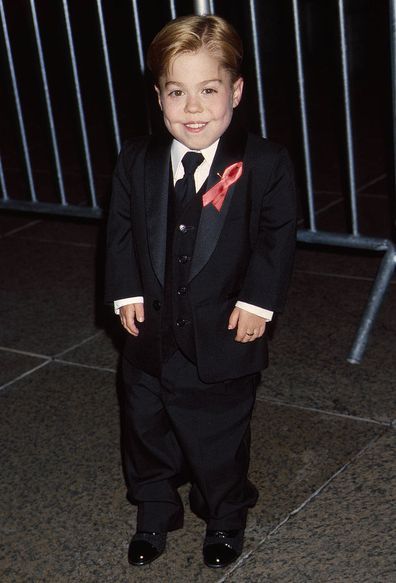
View On WordPress
0 notes
Note
Regarding your post on Timmy, the half-demon adopted son of a witch with a magical tax evading vodka aunt bio-mom, that is very much Timmy Lenox from the soap opera Passions. Old witch mum, visits with "the boys downstairs", drinking Martimmys. 💕
I am absolutely gonna put that down on my list of Things to Look Into because it sounds glorious
6 notes
·
View notes
Link
There is a thin line between sacrificing a lamb and striking a deal with the Devil.
We give up whole parts of ourselves to belong in our families. In turn, for those of us who dare to come home to ourselves, we risk losing our family and severing the ties that bind us.
When I was twenty-one, I became the first member of my family to earn a college degree. In hindsight, this seemingly positive milestone, or the culmination thereof, both gave and spared me a lifetime of heartache. By achieving an advanced education and moving just an hour from home, I unknowingly left my family, and in doing so, embarked on the long, arduous task of breaking through the invisible (but formidable) barriers of class and intergenerational trauma.
Pittsfield is a city people never leave or never return to; I only knew I had to go —that hanging out with girls who were “dating” their father’s friends and losing five of my cohort in just ten months to alcohol, suicide, and drugs filled me with foreboding. My peers and I shared a unique darkness. One that went beyond the cynical, independent, and pragmatic nature that hallmarks Generation X. We shared history rooted in trauma bonds. Collective memories steeped in Black Sabbath and Pink Floyd, psychedelics and Jack Daniels, sex hallmarked by confusion versus consent, a blur between victim and perpetrator —think Lord of the Flies meets Heavy Metal.
Despite having just over forty-one thousand residents, my hometown lays claim to one of America’s highest crime rates (from the smallest towns to the very largest of cities). If you visit, you have a 1 in 27 chance of being a victim of a violent crime. Put differently; you’re more likely to be mugged or collide with a drunk driver than to get COVID19 while not wearing a mask. The irony is the city lies nestled in the center of the sleepy Berkshire hills. The surrounding landscape, a living Norman Rockwell painting, populated by wealthy New Yorkers and nineteenth-century “cottages.” Home to the Boston Symphony Orchestra and Tanglewood, where tourists eat bacon-wrapped figs and sip Sauvignon Blanc on the lawn. The Berkshires —where you can visit Herman Melville’s house in Lenox and score crack in Pittsfield, all in the space of an hour.
My twenty-one-year-old self-fled to the Pioneer Valley, and misfit though I was, I claimed it as my home. Just fifty-one miles as the crow flies, it kept me within driving distance of my closely knit (but) turbulent clan while affording me the possibility of a new life. Northampton was both academic and bohemian, brimming with universities, bookstores, cafes, and the arts. It was an altogether different planet, and it terrified me.
I had no idea of the implications of this move —of what it meant to transition from a working-class family in a post-industrial ghost town ravaged by racial and class warfare to a white-collar world steeped in privilege and academia. I could not foresee the coils that spun out from my childhood to my future. How they’d wrap around my life like the tentacles of a giant squid, choking me, pulling at my dreams, dragging me under —how I’d thrash, how it would take decades before my lungs acclimated to the water that would birth me, and the casualties of connection to be incurred along the way.
*****
When we were teens, we traversed Pittsfield via an underground network of train tracks. We believed that if we put an ear to the railway metal, we would hear the train coming long before seeing it. That as long as we maintained a vigilance by pressing an occasional cheek against the hot-rolled steel, we’d anticipate the train’s arrival —hear the hissing of the rails, feel the engine’s vibration in our skull. In hindsight, this is how we lived our days. A trick we played to maintain the illusion of immortality –we believed that a car full of balloons would cushion a crash, that powder and smoke were less lethal than needles.
The reality was, we were often too stoned or just plain afraid, so we never actually listened for the train. Never anticipated the deaths of our friends.

We lost the first one to suicide. Pinned between two car bumpers on a Friday night bender, Paul never acclimated to his right legs’ amputation. Several months following the accident, he shot himself in the face in front of his fiancé. Then there was the motorcycle crash. Timmy was a bad boy from the town’s outskirts; he had warm cocoa curls and a smile sweeter than John Travolta. He flew his Harley around a corner, jacked on cocaine, and never landed. That same Autumn, up Barker Road, Ryan and Ellen wrapped their green Chevy Nova around a maple tree — he lived, she did not, their newborn baby home sleeping in her grandma’s arms.
Dearest to me was Bill, driven mad by an excess of Gooney Birds —that particularly potent blotter he partook of as a daily sacrament, so much so that the blur between his tripping and psychosis became indistinguishable. I can personally attest to the magic in those dime-size tabs, how it tingled your tongue and altered reality for days. Under its influence, I saw a bag of marshmallows breathe, watched my cousin’s hand melt into the ochre shag of a van rug. That November, Bill’s delusions drove him wild and deep into the woods of Hatfield; his body found unmarred amongst the ashen brush. The authorities said it was a lacerated liver, that he bled to death internally —that it was like going to sleep.
*****
At what moment do we begin the slow and steady handing over of our hearts? I remember being six and staring at dirty linoleum, my mother sobbing on the kitchen floor by the dishwasher. There were shards of glass underfoot; to walk toward her would require cutting myself. I believed that I had broken her —that my sister and I spawned a storm so vast that our home would not see sunlight for months. Our Italian grandmother and father concurred. So, I clapped my hand over my mouth each time my voice yearned to escape and swallowed it whole. Again, and again, I walked barefoot on glass to reach her. A little blood seemed a small price to pay. Slowly, I learned about relational transactions, equating love with pain, and silence with safety.
There is a thin line between sacrificing a lamb and striking a deal with the Devil. The first (we hope) affords us blessings and wishes. The latter steals our soul and damns us. When we offer up our voice in exchange for belonging, we silence our longing. It is a curious thing to consider; that to no longer Be our Longing, we must sever something, and it leaves me wondering what becomes of our hunger?
For me, my father’s blows and punches — an act of desperation intended (literally) to knock some sense into my inebriated fifteen-year-old head, no longer registered pain. My mother’s second wave of melancholy did not inspire compassion. The afternoon five girls ambushed me in a ballfield, and I felt the bubble gum on my tongue crumble like chalk when mixed with blood (a chemical reaction few have experienced) —I floated above the grass. Any part of me that longed for tenderness, validation, reassurance, and kindness burned down
—this is what trauma does; it begets and destroys, permeates, and empties.
*****
Fortunately, memory is malleable. To evoke a memory is to flick a switch —light up a constellation of neural pathways that are as intricate and ever-changing as the night skies. Our recollections are not so much facts as they are stories, and like all works in progress, they are subject to edits and revisions. Memory is as affected by our perceptions of the present as our perceptions of the past. This concept offers immense hope for those of us who have had bad things happen, which is to say —Everyone.
Implicit in this idea is that our perceptions can radically shift our stories —that when we mine our past for meaning, we will arrive at new understandings concerning our misfortunes, sorrows, and pain. Our divorce will no longer be a disaster, but rather a turning point that catalyzed a life otherwise not possible. A malignant tumor might serve as a wake-up call to a life otherwise spent underwater and holding our breath. I’m not implying we should wish adversity on ourselves but rather acknowledging that ultimately, we will all belong to some club. The “I lost my spouse to suicide” club. The “I had seven miscarriages and ten years of fertility treatment” club.” The “My mother was an alcoholic and my father left when I was two” club. To be alive is to be in a club.

I believe the road to wholeness begins with the slow and steady patching of our hearts’ fractured pieces. That by stitching together tiny moments of connection, risk, and vulnerability, we find our way Home. That it’s not a straight line, but a somewhat never-ending journey where hopelessness, fatigue, and lapsing into old habits is standard. As we age, there lies the potential to write our story versus having our story write us. And if we stay the course and remain open, we will slowly assemble a network culled through friendship, psychotherapy, surrogates, and self-made kin. We will come to a deeper understanding of the hows and the whys of our life and we will find our people.
It took me thirty-one years of individual therapy, earning my master’s degree in Psychology, becoming licensed as a psychotherapist, moving one hour and a lifetime away from home, one marriage, a divorce, and a child to find my way. The cost —immeasurable. To paraphrase Maya Angelou, I belong nowhere because I belong everywhere. I belong to myself. I belong to a tribe of tattooed scavengers who have mastered the art of melding dung to feathers —a band of gypsies, ravens, and heretics who hover between scrappy and soulful —who happily fly alongside Icarus, broken wings and all.
What we share beyond our common humanity is a visceral knowing that suffering is here to stay. That trauma is inseparable from life. That loss is both holy and abysmal, and that grief is, in turn, the most sacred and proper response to joy. We are all wretched and omnipotent, sitting in the sun and soaked to the bone.
This is what trauma does.
Like what you’ve read? Sign up to receive my musings filled with heart, concrete tools, and cutting edge resources via my blog: Loving Well.
0 notes
Video
youtube
7 notes
·
View notes
Photo

It's the book.
[S2 E129]
#passions#timmy lenox#tabitha lenox#josh ryan evans#juliet mills#season 2#season 2 episode 129#my screencaps
10 notes
·
View notes
Text
i mean, nothing will ever be as ridiculous and unrealistic and crazy as Tabitha and Timmy Lenox, like no matter what any other soap opera does it will never come close to the absolute clusterfuck that was Passions.
5 notes
·
View notes